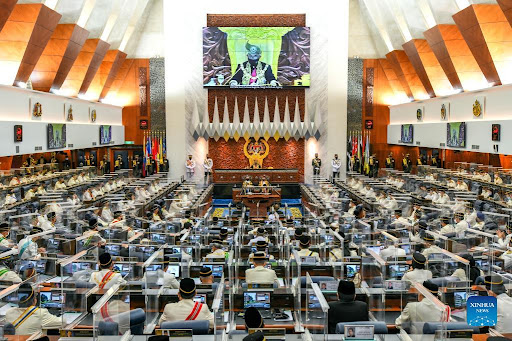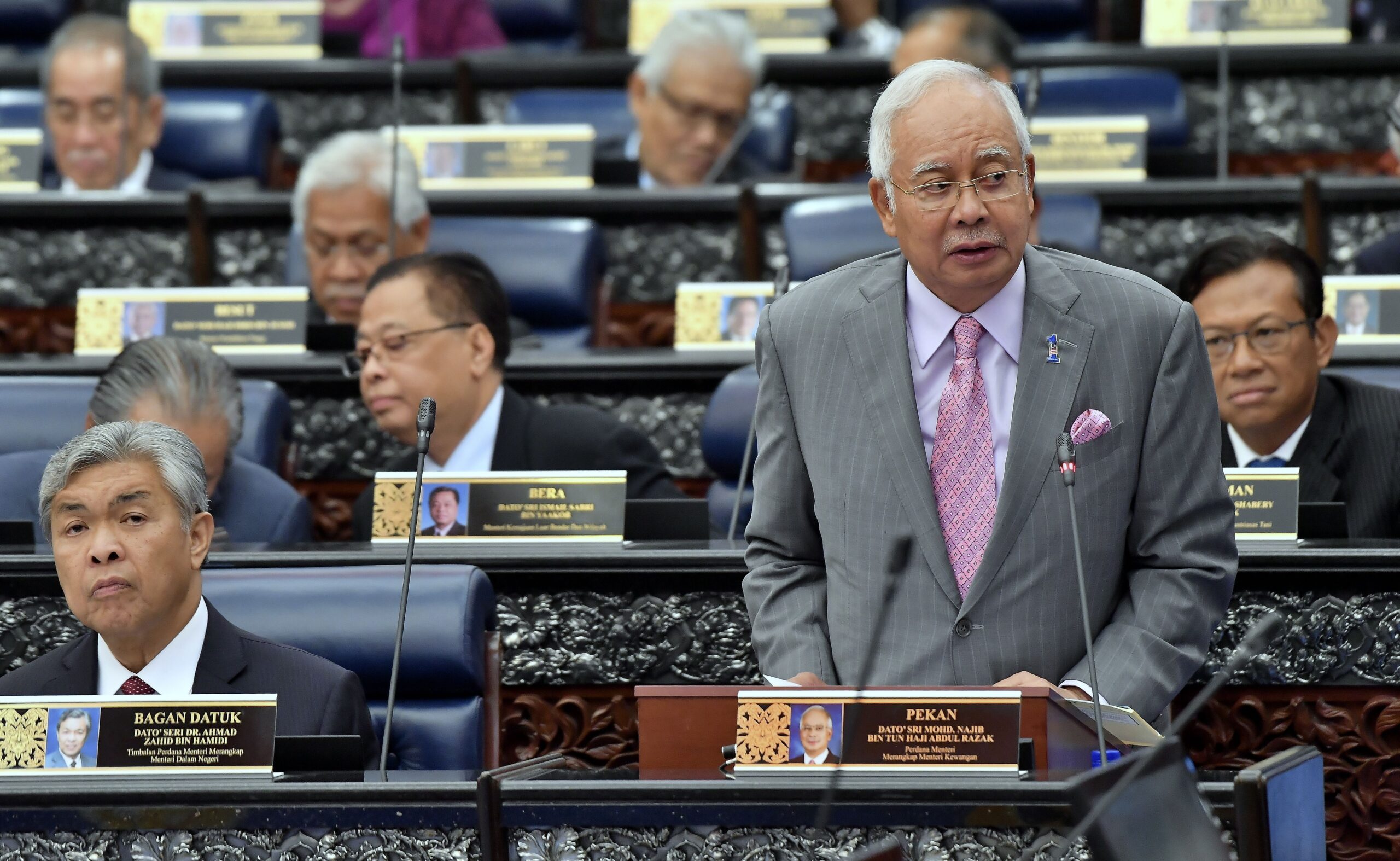AS absurd as it sounds, there is an urgent need to amend the Federal Constitution – hence, solidarity among MPs is second to none – in the quest to deprive any likelihood of an “express pardon” for lawmakers who have indulged in criminal activities.
In other words, unless the august house can deliver a two-third majority – which means both the ruling and opposition blocs must vote in favour of an amendment – UMNO’s “court cluster” leaders can spring back to action without having to stay behind bars for the entire or even half of the duration meted out by the courts.
“This provision in the constitution for a pardon is accorded only to serving members of Parliament – isn’t that an affront to common sense?” was the immediate reaction of political critic and veteran journalist Kee Thuan Chye upon learning of such an entitlement being accorded to all MPs irrespective of the nature of their crime.
The author of Ask for No Bullshit, Get Some More! (sequel to No More Bullshit, Please, We’re All Malaysians) was commenting on the call by former ALIRAN president P. Ramakrishnan (1994-2011) to remove the mockery that entitled all MPs to seek a pardon immediately following their conviction, as guaranteed under the constitution.
As such, even though ex-premier Datuk Seri Najib Razak “has not repented to deserve any sympathy, clemency or mercy”, there is “a potential for a possible early pardon and that possibility is real”, according to Ramakrishnan who has remained an ALIRAN member since the reform movement was incepted in 1977.
“It would be an absolute embarrassment if the court findings and punishment were to be nullified through this pardon process in the case of Najib,” he opined.
“The only thing to do to get over this mockery is to amend the constitution and remove this discriminatory constitutional provision that provides this special privilege to convicted criminals who are MPs. This deserves Parliament’s urgent attention.”

For lawyer Mohamed Haniff Khatri Abdulla, it is more of “hope and wishful thinking” for now as amending Article 48(4) of the constitution will require a two-thirds majority in the Dewan Rakyat – support that the current administration led by Prime Minister Datuk Seri Ismail Sabri Yaakob simply does not have.
“Obviously in a fragile Government and (with) less than a year left for the 14th Parliament term to mature, we will not succeed in amending Article 48 of the Federal Constitution,” he pointed out.
“We can only hope that the new Government formed through the mandate in the 15th General Election (GE15) will present a proposal to amend Article 48 of the Federal Constitution.”
“Intentionally forgetting”
In his Facebook posting entitled “Risk Underestimating a Royal Pardon” on Aug 24, veteran journalist and blogger Datuk A. Kadir Jasin accused Bossku (Najib’s moniker) of intentionally forgetting that current opposition leader Datuk Seri Anwar Ibrahim had served more than three years of imprisonment beginning in 2015 prior to being pardoned.

“His (Anwar’s) pardon was presented before the voters in PH’s (Pakatan Harapan) manifesto.
“Moreover, his crime did not burden the country and the common people with billions of ringgit in debt unlike what Najib did in the SRC International Sdn Bhd and 1MDB (1Malaysia Development Bhd) cases,” argued Kadir.
Below are other “classic examples” furnished by Kadir:
“Supporters of the court cluster deliberately forget or are unaware that the late Datuk Seri Harun Idris also served a long prison term in the criminal breach of trust (CBT) pertaining to the Bank Rakyat case before being granted pardon.
He was imprisoned in 1977 and was only pardoned in 1982. His release alongside 62 other inmates was to commemorate the 25th anniversary of the country’s independence.
Harun did not siphon the money for himself but for the staging of Muhammad Ali-Joe Bugner’s boxing match in Kuala Lumpur in 1975.
So did the late Datuk Mokhtar Hashim who killed his political enemy, Datuk Mohamad Taha Talib in 1982. He was sentenced to death in 1983 but was given amnesty to life imprisonment the following year by the Yang di-Pertuan Agong.
He was tried in Kuala Lumpur and imprisoned in the Pudu Prison. In 1991 he was granted a second amnesty and was released after nine years in prison.”
Najib will remain as the Pekan MP for now after he filed a petition for a royal pardon over his SRC International corruption conviction in time; he will only lose his eligibility as an MP if the petition is rejected and disposed of.
Najib is believed to have applied for a royal pardon from Yang di-Pertuan Agong Sultan Abdullah Ahmad Shah as the King has the power to grant pardons for offences committed in the federal territories of Kuala Lumpur, Labuan and Putrajaya.
It was the Kuala Lumpur High Court that heard Najib’s SRC International case when it started four years ago and whose eventual ruling was subsequently upheld by the Court of Appeal and Federal Court.
On Aug 23, the Federal Court rejected Najib’s final appeal in his SRC International RM42 mil corruption case and upheld his seven charges of power abuse, criminal breach of trust and money laundering, RM210 mil fine and 12-year jail sentence.
The UMNO lawmaker is currently serving time in the Kajang Prison. – Sept 18, 2022
Main photo credit: The Star









